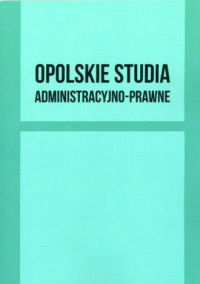Rzymskie źródła kanonicznego pojęcia dyspensy
The Roman sources of the canonical notion of dispensation
Author(s): Piotr SadowskiSubject(s): Law, Constitution, Jurisprudence
Published by: Uniwersytet Opolski
Keywords: THE ROMAN LAW; DISPENSATION
Summary/Abstract: In the light of Canon 85 of the Code of Penal Procedure (CPC) 83, dispensation means „relaxation of the purely ecclesiastical law in a particular case” (legis mere ecclesiasticae in casu particulari relaxatio). Granted by those who wield the executive power, within the limits of their competences, it is an act of the administrative character. It was to the opposite effect as regards CPC 17, which associated dispensation with the legislative act. By easing the rigour of the general legal norms it constitutes one of the key notions which express the spirit of the canonical law, about which Paolo Grossi wrote that „either it serves delivering souls or is a noisy aberration.” The Latin word dispensatio corresponds to the Greek one oikonomia, which – in patristics – is understood as administering, providential managing the world, a saving plan of God towards man, or – at last – an art of accommodation. Beside these terms, the institution of dispensation has also been referred to as: indulgentia, relaxatio a summo iure, temperamentum salubri moderatione factum, misericordia, humanitas, liberatio or venia relaxata. It was already in the First Letter to the Corinthians 9,22 where St. Paul wrote: „To the weak I have become like a weak one so as to win the weak…”. The working out of the legal term of dispensation, which we can find in canon 85 CPC 83 today, is the result of a long evolution. Granting dispensation requires a right and rational reason (Canon 90 § 1 CPC 83). The author of this paper looks for an answer to the question whether we can discern the sources of the canonical notion of dispensation in the Roman law. History provides us with many arguments to conclude that ancient Romans executed relaxatio legis. This can be seen, for example, in the case of Pompeius (106-48 B.C.), who became, together with Marcus Crassus, the Consul in 70 B.C., upon the agreement obtained from the Senate, although he was not old enough in the eyes of law. The relaxatio legis in ancient Rome can further be illustrated by the report submitted by Suetonius, concerning Octavian Augustus. „He was greatly careful to secure that the Roman blood should be preserved in its immaculate state, not contaminated by any foreign or slave’s admixture. He granted Roman citizenship with utmost care and restricted the number of slaves being liberated. When Tiberius pleaded with him for granting citizenship to a client of his, a Greek, the former wrote him back that he would agree to do so only when Tiberius came to him in his own person and convinced him about the reasonableness of the request.” We can discern implicite influences on the canonical notion of dispensation in many areas of the Roman law, viz. in ius singulare, the Roman way of understanding of the culture of law and order, with special taking into account of the Praetor’s activity which was restraining towards ius civile, or drawing from the Roman aequitas while establishing norms and solvin
Journal: Opolskie Studia Administracyjno-Prawne
- Issue Year: X/2012
- Issue No: 4
- Page Range: 79-93
- Page Count: 15
- Language: Polish

